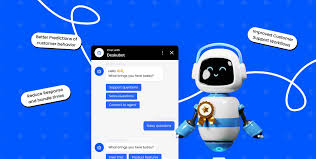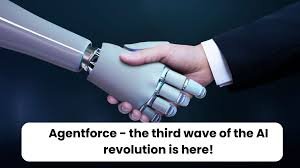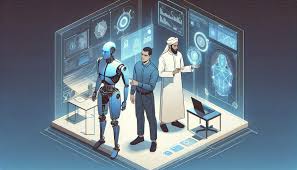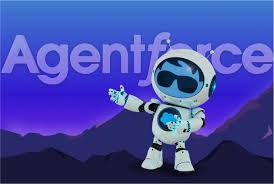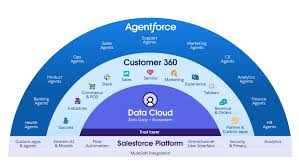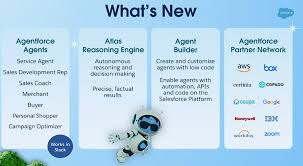Agentforce is how humans with AI drive customer success together, equips organizations with autonomous agents that boost scale, efficiency, and satisfaction across service, sales, marketing, commerce, and more New Agentforce Atlas Reasoning Engine autonomously analyzes data, makes decisions, and completes tasks, providing reliable and accurate results With Agentforce, any organization can build, customize, and deploy their own agents quickly and easily, with low-code tools New Agentforce Partner Network allows customers to deploy pre-built agents and use agent actions from partners like Amazon Web Services, Google, IBM, Workday, and more Customers like OpenTable, Saks, and Wiley are turning to Agentforce because it is integrated with their apps, works across customer channels, augments their employees, and scales capacity for business needs SAN FRANCISCO — September 12, 2024 – Salesforce (NYSE: CRM), the world’s #1 AI CRM, today unveiled Agentforce, a groundbreaking suite of autonomous AI agents that augment employees and handle tasks in service, sales, marketing, and commerce, driving unprecedented efficiency and customer satisfaction. Agentforce enables companies to scale their workforces on demand with a few clicks. Agentforce’s limitless digital workforce of AI agents can analyze data, make decisions, and take action on tasks like answering customer service inquiries, qualifying sales leads, and optimizing marketing campaigns. With Agentforce, any organization can easily build, customize, and deploy their own agents for any use case across any industry. The future of AI is agents, and it’s here. Our vision is bold: to empower one billion agents with Agentforce by the end of 2025. This is what AI is meant to be.” MARC BENIOFF, CHAIR, CEO & CO-FOUNDER, SALESFORCE “Agentforce represents the Third Wave of AI—advancing beyond copilots to a new era of highly accurate, low-hallucination intelligent agents that actively drive customer success. Unlike other platforms, Agentforce is a revolutionary and trusted solution that seamlessly integrates AI across every workflow, embedding itself deeply into the heart of the customer journey. This means anticipating needs, strengthening relationships, driving growth, and taking proactive action at every touchpoint,” said Marc Benioff, Chair and CEO, Salesforce. “While others require you to DIY your AI, Agentforce offers a fully tailored, enterprise-ready platform designed for immediate impact and scalability. With advanced security features, compliance with industry standards, and unmatched flexibility. Our vision is bold: to empower one billion agents with Agentforce by the end of 2025. This is what AI is meant to be.” In contrast to now-outdated copilots and chatbots that rely on human requests and struggle with complex or multi-step tasks, Agentforce offers a new level of sophistication by operating autonomously, retrieving the right data on demand, building action plans for any task, and executing these plans without requiring human intervention. Like a self-driving car, Agentforce uses real-time data to adapt to changing conditions and operates independently within an organizations’ customized guardrails, ensuring every customer interaction is informed, relevant, and valuable. And when desired, Agentforce seamlessly hands off to human employees with a summary of the interaction, an overview of the customer’s details, and recommendations for what to do next. Industry leaders like OpenTable, Saks, and Wiley are already experiencing the transformative power of Agentforce. For example, Agentforce is helping organizations like Wiley provide customers with dynamic, conversational self-service. Agentforce is configured to answer questions using Wiley’s knowledge base already built into Salesforce so it can automatically resolve account access. It also triages registration and payment issues, directing customers to the appropriate resources. With Agentforce handling routine inquiries, Wiley has seen an over 40% increase in case resolution, outperforming their old chatbot and giving their human agents more time to focus on complex cases. Why it Matters An estimated 41% of employee time is spent on repetitive, low-impact work, and 65% of desk workers believe generative AI will allow them to be more strategic, according to the Salesforce Trends in AI Report. Every company has more jobs to be done than the resources available to do them. As a result, many jobs go unaddressed or uncompleted. Agentforce provides relief to overstretched teams with its ability to scale capacity on demand so humans can focus on higher-touch, higher-value, and more strategic outcomes. The future of work is a hybrid workforce composed of humans with agents, enabling companies to compete in an ever-changing world. Supporting Customer Quotes “Piloting Agentforce has made a noticeable difference during one of our busiest periods — back-to-school season. It’s been exciting to go live with our first agent thanks to the no-code builder, and we’ve seen a more than 40% increase in case resolution, outperforming our old bot. Agentforce helps to manage routine responsibilities and free up our service teams for more complex cases.” – Kevin Quigley, Senior Manager, Continuous Improvement, Wiley “Every interaction that restaurants and diners have with our support team must be accurate, fast, and reflective of the hospitality that restaurants show their guests. Agentforce has incredible potential to help us deliver that high touch attentiveness and support while significantly freeing up our team to address more complex needs.” – George Pokorny, SVP Customer Success, OpenTable “As we advance our personalization strategy, we believe Agentforce and its AI-powered capabilities have the potential to make a real impact on our approach to customer engagement, raising the bar in luxury retail. Agentforce will improve our effectiveness across customer touchpoints, empowering our employees and augmenting their ability to deliver the elevated and more individualized shopping experiences for which Saks is known.” – Mike Hite, Chief Technology Officer, Saks Global Like1 Related Posts Salesforce OEM AppExchange Expanding its reach beyond CRM, Salesforce.com has launched a new service called AppExchange OEM Edition, aimed at non-CRM service providers. Read more The Salesforce Story In Marc Benioff’s own words How did salesforce.com grow from a start up in a rented apartment into the world’s Read more Salesforce Jigsaw Salesforce.com, a prominent figure in cloud computing, has finalized a deal to acquire Jigsaw, a wiki-style business contact database, for Read more Service Cloud with AI-Driven Intelligence Salesforce Enhances Service Cloud with AI-Driven Intelligence Engine Data science and analytics are rapidly

